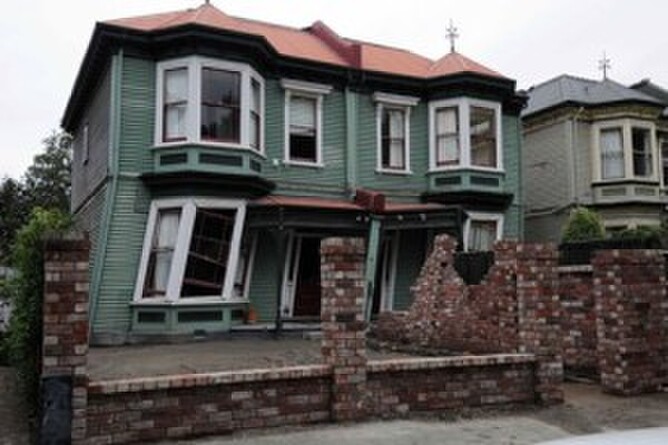The radio advertising has just started. TV and print advertising will probably start soon
You will be getting a flier in the mail with your house insurance renewal statement. Why? What is it all about?
If you own a house, this is probably the most important financial issue for you in the next year.
Insurers are changing the way that they insure your house. It means more work for you. It is important that you put the time and effort into making sure that your valuation is right. Moneyworks aren't fire and general insurance brokers, we take expert advice from a specialist insurance broker - Bridges Insurance. BUT we DO know that it is important that all our clients know what is happening.
You need to decide how you are going to value your house. Are you going to get a registered valuer to do it? A Quantity Surveyor? Are you going to use the online calculators - which cost you nothing, but might not be entirely accurate if you have a complicated house?
Bridges recommend that you give the online calculators a try - but if your house is a little different (say a historic home, a home with high quality fittings, a house with difficult access) - it is probably worth spending the money to get an independent valuation.
Using a registered valuer
As an indication for an independent valuation, we got a valuation from valuer that we have used regularly in the past. These are their comments: The fee charged is on a case by case basis, but a base fee for an average house is $550 + GST, i.e. 2 hours’ work + disbursements. If however we are doing a Market Valuation, the add on fee to carry out an Insurance report would be in the order of $250+ GST. The firm is Telfer Young and they have national covereage. If you would like to contact them, click here. This costing should be a good indication of costs of using a valuer.
Using the online calculators.
Each insurance company is going to have a different calculator, but the advertising campaigns are for a universal calculator at www.need2know.org.
The article below is from the latest Bridges client newsletter, and gives you more up to date information on what the process is, and the things that you need to take into account. For more information from Bridges - their website is www.bridges.co.nz.
Changes to Insurance from April 2013
For New Business and Renewals AFTER April 2013, there are significant changes to insurance that will affect everyone that has House Cover- The removal of Square Metre (SQM) replacement cover. Every policy will move to a Sum Insured Replacement Value instead.
No two homes are alike – the cost of replacing them varies hugely depending on materials, fittings and design factors. This change brings NZ into line with the majority of other countries.
The key benefit of a Sum Insured Replacement Policy over SQM is that it is more fair and equitable.
Consider this situation: your neighbour has a house pretty much the same size as yours but is built to a much higher quality. With a SQM policy they would pay the same premium as you, but their claims costs would be far higher than yours. it doesn’t seem fair, does it, that they pay the same premium as you? The move to Sum Insured Replacement Policy removes this discrepancy.
WHAT DO YOU NEED TO DO?
Decide the amount of money you will need to replace your property in the event of something happening to it. There are a number of options that you
can take to establish the valuation of your property for insurance purposes. (once again please note this is NOT a MARKET VALUATION for the purposes of selling)
1) ONLINE -To assess the replacement cost of your dwelling there are a number of websites from various insurers. These will all be slightly different but use the same premise to help you calculate your replacement cost.
Our team have trialed www.lumley.co.nz/suminsured AND http://need2know.org.nz/nzi/ and found it takes on average 5-10 minutes and is very straight forward. The process is easy and doesn’t require you to know a lot of technical detail.
2) Get a Registered Valuation. Naturally there is a cost, and with the changes, the services of Registered Valuers may be in higher demand. However this is an option if you are looking for more formal reassurance and feel this is appropriate for you.
3) If you have a builder friend or contact, consider asking a reputable builder to give you a quote to rebuild your dwelling to the standard it is now, keeping in mind the factors noted below. There may be a charge for this of course.
4) Finally and perhaps as a last resort, decide for yourself what you believe you would like to insure your property for. Your challenge with this is that many factors need to be considered so unless you have significant experience or feel confident that you won’t UNDER INSURE yourself then it is an option.
Remember, to replace your property you have to consider a number of factors
- demolition and removal of existing materials
- consents, compliance and application fees
- architect fees
- labour costs
- project management fees
- connection to services (phone, power, waste water, gas)
- the actual materials to build
- site works/preparation for foundations, retaining walls, fencing, driveways, pools, tennis courts, spa pools and any other recreational structures.
- demand surge (where prices go up because demand is higher than normal)
These costs are often underestimated.
We urge you to factor these items into the equation. When your renewal comes out, it will contain a DEFAULT value that your insurer has set. THIS CAN BE CHANGED to better meet the realities of your situation. You can begin the process now using some of the tips we have highlighted. This should give you an indication of what an appropriate Sum Insured Replacement Value will be.
If you have any thoughts or opinions that you would like to share, visit us at our Twitter, Facebook or Linked In pages, and comment.
For more blog entries that you might be interested in:
Important – make sure your house insurance is reviewed and updated this year
Houseowners and insuring your house
By Carey Church






